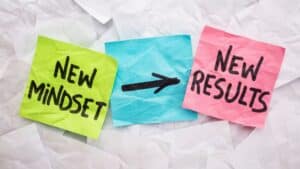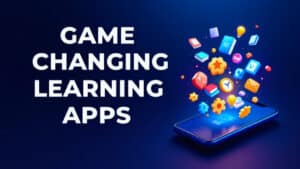In today’s fast-paced world, achieving success often requires continuous self-improvement and skill development. Whether you’re looking to excel in your current job or exploring new career opportunities, focusing on personal growth is crucial. This article will explore essential skills you need to develop for success and offer practical advice on how to start working on yourself.
Understanding Self-Improvement
Self-improvement is the process of making changes in your life to better yourself. It involves setting goals, learning new skills, and cultivating a mindset that embraces growth and change. While self-improvement can be a lifelong journey, it’s important to recognize that it starts with taking the first step.
Setting Meaningful Goals
Setting meaningful goals is fundamental to self-improvement. Clearly defined objectives provide a roadmap for your growth journey. Start by identifying areas in your life where you wish to improve, whether they be personal, professional, or both. Break down these goals into smaller, manageable tasks to make the journey less daunting. Consider using tools like SMART (Specific, Measurable, Achievable, Relevant, Time-bound) goals to ensure clarity and focus.
Embracing Lifelong Learning
Lifelong learning is a commitment to continuously acquiring new skills and knowledge. In a rapidly changing world, staying updated with the latest trends and technologies is essential. Enroll in courses, attend workshops, and engage in self-study to expand your horizons. Remember, learning doesn’t always have to be formal; sometimes, the most valuable lessons come from everyday experiences.
Cultivating a Growth Mindset
A growth mindset is the belief that your abilities and intelligence can be developed through dedication and hard work. Embrace challenges, view failures as learning opportunities, and persist despite obstacles. By fostering a growth mindset, you open yourself up to endless possibilities and set the stage for continuous self-improvement.
By working on self-improvement, you not only increase your chances of success in the workplace but also enhance your overall quality of life. Let’s dive into some key areas to focus on.
Communication Skills

Communication is a fundamental skill in both personal and professional settings. It involves not only speaking and writing clearly but also listening actively and understanding non-verbal cues. Here are some ways to work on your communication skills:
Listening Actively
Active listening means fully concentrating on what is being said rather than just passively hearing the message. Practice active listening by giving the speaker your full attention, nodding to show understanding, and asking questions to clarify points. In conversations, try to summarize the speaker’s words to ensure you understand their message correctly. This not only reinforces your comprehension but also demonstrates to the speaker that you value their input.
Improving Verbal Communication
To improve verbal communication, focus on being clear and concise. Avoid jargon and use language that is easy to understand. Practice speaking in front of a mirror or with a friend to build confidence. Engage in public speaking opportunities, such as joining a Toastmasters club, to refine your skills. Additionally, pay attention to your tone and body language, as they significantly impact how your message is received.
Enhancing Written Communication
Effective written communication is crucial, especially in the workplace. To improve your writing, focus on organizing your thoughts, using proper grammar, and proofreading your work. Consider taking a writing course to refine your skills. Experiment with different writing styles and formats to discover what works best for your audience. Utilize tools like Grammarly or Hemingway Editor to polish your writing, ensuring clarity and professionalism.
Understanding Non-Verbal Cues
Non-verbal communication, including body language, facial expressions, and eye contact, plays a significant role in how messages are conveyed and received. Being attuned to these cues can enhance your communication effectiveness. Practice maintaining eye contact to show confidence and interest. Be mindful of your posture and gestures, as they can convey openness or defensiveness. Understanding non-verbal signals helps in interpreting others’ emotions and intentions accurately.
Emotional Intelligence
Emotional intelligence (EI) is the ability to understand and manage your own emotions, as well as the emotions of others. High EI can lead to better relationships and improved decision-making. Here are some aspects of EI to develop:
Self-Awareness
Being aware of your emotions and how they affect your actions is the first step in developing emotional intelligence. Reflect on your feelings and consider keeping a journal to track your emotional responses in various situations. Regular self-reflection allows you to identify patterns in your behavior and understand their impact on your interactions. This awareness forms the foundation for managing emotions effectively.
Empathy
Empathy is the ability to understand and share the feelings of others. Practice empathy by putting yourself in someone else’s shoes and considering their perspective before reacting. Engage in active listening to truly understand their emotions and experiences. Empathy fosters deeper connections and enhances your ability to navigate complex social interactions. It also enables you to respond with compassion and understanding.
Managing Emotions
Learn to manage your emotions by identifying triggers and developing coping strategies. Techniques such as deep breathing, meditation, and mindfulness can help you stay calm and focused. Practice emotional regulation by pausing before reacting impulsively, allowing yourself time to process emotions rationally. This skill is invaluable in high-pressure situations, enabling you to maintain composure and make informed decisions.
Building Healthy Relationships
Emotional intelligence extends beyond personal awareness to building and maintaining healthy relationships. Cultivate trust and open communication in your interactions. Practice active listening and empathy to understand others’ perspectives. Conflict resolution skills are also crucial for navigating disagreements constructively. By fostering positive relationships, you create a supportive network that contributes to your personal and professional growth.
Transform Your Life Today
Learn powerful strategies that will accelerate your personal growth journey!
Adaptability
In today’s rapidly changing world, adaptability is a vital skill. Being open to change and willing to learn new things can set you apart in the workplace. Here are some tips for becoming more adaptable:
Embrace Change
Instead of fearing change, view it as an opportunity for growth. Stay informed about industry trends and be open to learning new skills. Cultivate a flexible mindset that welcomes new experiences and challenges. Develop the habit of stepping outside your comfort zone regularly to build resilience. Embracing change not only enhances your adaptability but also fosters innovation and creativity.
Develop a Growth Mindset
A growth mindset is the belief that you can develop your abilities through dedication and hard work. Embrace challenges, learn from criticism, and persist in the face of setbacks. Surround yourself with supportive individuals who encourage your growth journey. Recognize that setbacks are part of the learning process and use them as stepping stones toward improvement. With a growth mindset, you can overcome obstacles and achieve your goals.
Be Open to Feedback
Constructive feedback can help you grow and improve. Listen to feedback with an open mind, and use it to identify areas for development. Seek feedback from colleagues, mentors, and peers regularly to gain different perspectives. Actively incorporate feedback into your personal development plan, setting actionable goals for improvement. Viewing feedback as a valuable tool for growth enhances your adaptability and self-awareness.
Cultivate Resilience
Resilience is the ability to bounce back from setbacks and adapt to adversity. Strengthen your resilience by focusing on your strengths and maintaining a positive outlook. Practice self-care and stress management techniques to cope with challenges effectively. Surround yourself with a support network that provides encouragement and motivation. Building resilience equips you to navigate uncertainties with confidence and perseverance.
Time Management

Effective time management is essential for achieving success. By prioritizing tasks and managing your time efficiently, you can increase productivity and reduce stress. Here are some ways to improve your time management skills:
Set Clear Goals
Establish clear, achievable goals to give your work direction and purpose. Break larger tasks into smaller, manageable steps, and set deadlines for each. Use goal-setting frameworks like OKRs (Objectives and Key Results) to align your efforts with your broader objectives. Regularly review your progress and adjust your goals as needed to stay on track. Clear goals provide focus and motivation, driving you toward success.
Prioritize Tasks
Identify the most important tasks and focus on completing them first. Use techniques such as the Eisenhower Box or the Pomodoro Technique to help prioritize and manage your workload. Create a daily or weekly to-do list to organize your tasks effectively. Learn to differentiate between urgent and important tasks, allocating your time and resources accordingly. Prioritization ensures that you tackle high-impact activities, optimizing your productivity.
Eliminate Distractions
Minimize distractions by creating a dedicated workspace and setting boundaries with colleagues or family members. Use tools like website blockers or noise-canceling headphones to maintain focus. Practice time-blocking to allocate specific periods for focused work, minimizing interruptions. Regularly assess your environment and routines to identify and eliminate potential distractions. By creating a distraction-free zone, you enhance your ability to concentrate and accomplish tasks efficiently.
Practice Time Tracking
Time tracking involves monitoring how you spend your time throughout the day. Use apps or tools to record your activities and analyze patterns. Identify time-wasting habits and areas where you can improve efficiency. Time tracking provides valuable insights into your productivity, allowing you to make informed adjustments. By understanding your time usage, you can optimize your schedule and allocate resources effectively.
Networking
Building a strong professional network can open doors to new opportunities and help you succeed in your career. Here are some strategies to enhance your networking skills:
Attend Industry Events
Participate in conferences, workshops, and seminars to meet new people and learn about industry trends. Be open to engaging in conversations and exchanging contact information with potential connections. Prepare a brief elevator pitch to introduce yourself and your interests effectively. Follow up with attendees after the event to nurture these connections. Attending industry events expands your network and keeps you informed about the latest developments.
Utilize Social Media
Platforms like LinkedIn can help you connect with professionals in your field. Share relevant content, engage with others’ posts, and join groups to expand your network. Regularly update your profile to reflect your skills and accomplishments, making it easier for others to find and connect with you. Participate in online discussions and offer valuable insights to establish yourself as a knowledgeable and engaged professional. Leveraging social media enhances your visibility and networking reach.
Follow Up
After meeting someone new, follow up with a personalized message or email. Express your appreciation for the conversation and express interest in staying connected. Mention specific topics or insights discussed during your meeting to demonstrate genuine engagement. Schedule follow-up meetings or coffee chats to deepen the relationship. Consistent follow-up shows professionalism and helps build lasting connections.
Engage in Mentorship
Mentorship provides a valuable opportunity to learn from experienced professionals and give back to others. Seek out mentors who can offer guidance and support in your career journey. Additionally, consider mentoring others, sharing your knowledge and experiences. Engaging in mentorship fosters mutual growth and strengthens your network. It also enhances your skills in communication and leadership.
Problem-Solving Skills
Problem-solving skills are essential for overcoming challenges and finding innovative solutions. Here are some ways to develop this critical skill:
Analyze the Situation
Take the time to understand the problem thoroughly before jumping to conclusions. Gather information, identify the root cause, and consider different perspectives. Break down complex problems into smaller, manageable components to facilitate analysis. Utilize tools like SWOT analysis or fishbone diagrams to organize your thoughts systematically. Thorough analysis ensures a comprehensive understanding of the problem, laying the groundwork for effective solutions.
Brainstorm Solutions
Generate a list of possible solutions by thinking creatively and considering unconventional ideas. Evaluate the pros and cons of each option and select the best course of action. Encourage collaboration and diverse input from team members to enhance creativity. Utilize techniques like mind mapping or brainstorming sessions to stimulate idea generation. Creative problem-solving opens doors to innovative solutions that address challenges effectively.
Implement and Evaluate
Put your chosen solution into action and monitor its effectiveness. Be prepared to adjust your approach if necessary and learn from the experience. Establish key performance indicators (KPIs) to measure the success of your solution. Conduct regular evaluations to assess its impact and make data-driven adjustments. Continuous evaluation and adaptation ensure that your problem-solving efforts yield positive and sustainable results.
Develop Critical Thinking
Critical thinking involves analyzing information objectively and making informed decisions. Practice questioning assumptions and seeking evidence to support conclusions. Engage in activities that challenge your reasoning skills, such as puzzles or debates. Embrace a curious mindset, exploring alternative viewpoints to broaden your understanding. Developing critical thinking enhances your ability to solve problems systematically and make sound judgments.
Conclusion
Working on self-improvement is an ongoing process that requires dedication and effort. By focusing on developing essential skills such as communication, emotional intelligence, adaptability, time management, networking, and problem-solving, you can enhance your personal and professional life. Start today by setting goals, seeking feedback, and embracing opportunities for growth. Remember, the journey to success begins with taking the first step towards working on yourself. As you progress, celebrate your achievements and remain open to learning, ensuring a fulfilling and successful life journey.
Related: Leadership insights from Forbes













Your blog is a treasure trove of valuable insights and thought-provoking commentary. Your dedication to your craft is evident in every word you write. Keep up the fantastic work!